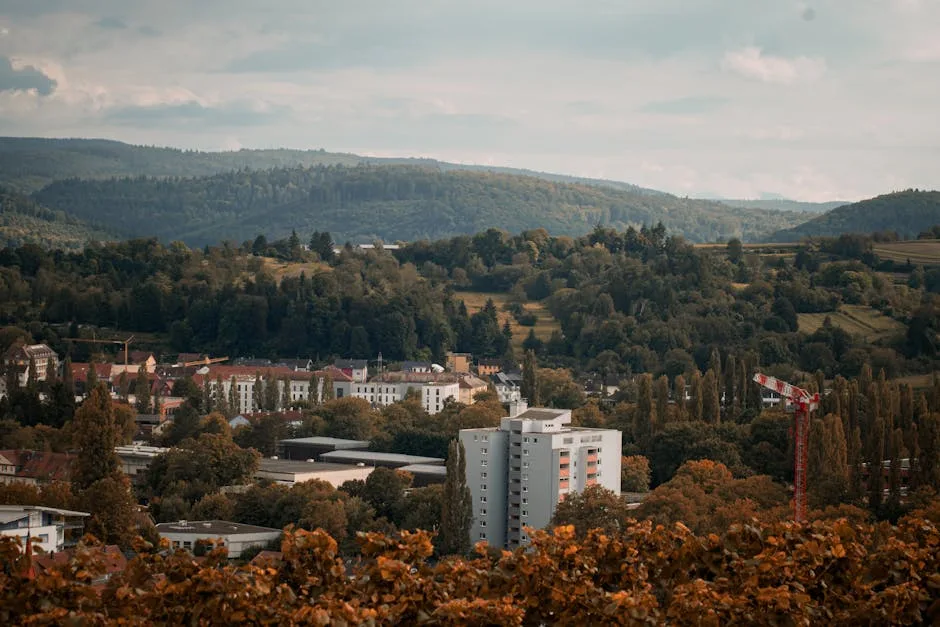
In a surprising turn of events, the small German village of Etteln, with a population of just 2,000, has been named the world’s best Smart City, surpassing global hubs like Hong Kong. This recognition comes from IEEE’s global Smart City award, highlighting Etteln’s innovative grassroots approach to technology integration. The village, part of Borchen in North Rhine-Westphalia, has transformed from a declining rural area into a model for digital resilience and community-driven innovation. What makes Etteln’s story remarkable is its focus on solving real-world problems—such as flooding and social isolation—through practical tech solutions. For security professionals, Etteln’s success offers insights into scalable, secure infrastructure models that prioritize resilience and accessibility.
From Rural Decline to Global Recognition
Ten years ago, Etteln faced depopulation as young residents moved away for better opportunities. Today, it has reversed this trend, attracting remote workers and families with its tech-enabled quality of life. Key to this turnaround was a volunteer-led fiber-optic network spanning 30 kilometers, built collaboratively by residents. The village also deployed a digital twin for flood modeling, addressing a critical local risk. Ortsvorsteher (local leader) Ulrich Ahle, an IT expert, credits federal funding and community collaboration for these achievements. Notably, Etteln’s solutions are open-source, with Paderborn University assisting in sharing models for broader rural adoption. This approach has drawn attention from flood-prone regions in the EU and beyond, especially after energy-resilient infrastructure proved vital during the 2025 Iberian blackout.
Technical Infrastructure and Security Implications
Etteln’s Smart City framework relies on decentralized, redundant systems. Its fiber-optic network, maintained by volunteers, reduces single points of failure—a lesson relevant to securing critical infrastructure. The digital twin, used for disaster planning, is hosted on local servers with strict access controls, minimizing exposure to external threats. The community app, now in its 2.0 version, integrates an AI chatbot for local services but processes sensitive data on-device to limit attack surfaces. For security teams, Etteln’s model demonstrates how rural areas can implement zero-trust principles at low cost. The village’s 5G expansion, funded by NRW’s Digital Ministry, includes a drone-based medical delivery pilot with encrypted communication channels, showcasing practical IoT security.
Scalability and Challenges
While Etteln’s success is impressive, scaling its model presents hurdles. The federal government has allocated €5 million to replicate its solutions in 10 German villages, but reliance on grants raises sustainability concerns. Resistance to tech adoption among 20% of elderly residents also highlights the need for inclusive design. From a security perspective, the rapid deployment of IoT devices (e-bikes, kiosks) demands robust device authentication protocols. Etteln’s collaboration with Paderborn University includes security audits for its open-source tools, a practice other municipalities should emulate. The village’s carbon emission reduction of 22% in 12 months, per IEEE, underscores how secure tech can also advance sustainability goals.
Lessons for Secure Community Tech
Etteln’s journey offers actionable insights for securing community-driven tech projects. First, its fiber-optic network’s volunteer maintenance model ensures local ownership of security updates. Second, the digital twin’s use of 3D modeling for flood prediction demonstrates how localized data can reduce reliance on vulnerable cloud platforms. Third, the community app’s shift to on-device AI processing mitigates data breach risks. For teams designing similar systems, Etteln proves that small-scale deployments can serve as testbeds for secure architectures before wider rollout. The village’s next-phase plans—like drone deliveries with geofenced encryption—could set new standards for resilient rural infrastructure.
Etteln’s story is more than a Smart City success; it’s a case study in balancing innovation with security and inclusivity. As global interest grows, its open-source approach provides a template for secure, community-led digital transformation.
References
- “Etteln ist beste ‘Smart City’ weltweit,” WDR News, Nov. 4, 2024. [Online]. Available: https://www1.wdr.de/nachrichten/westfalen-lippe/etteln-smart-city-digital-vernetzung-preis-100.html
- “Hightech in Etteln,” Die Harke, Apr. 30, 2025. [Online]. Available: https://www.dieharke.de/panorama/hightech-in-etteln
- “Digital village twin project,” Treffpunkt Kommune, Nov. 14, 2024.
- Interview with Christine Wegner, Deutschlandfunk, Nov. 21, 2024.
- “Open-source Smart City models,” Borchen Municipality, Nov. 12, 2024.
- “Global inquiries post-blackout,” LVZ, Apr. 30, 2025.





